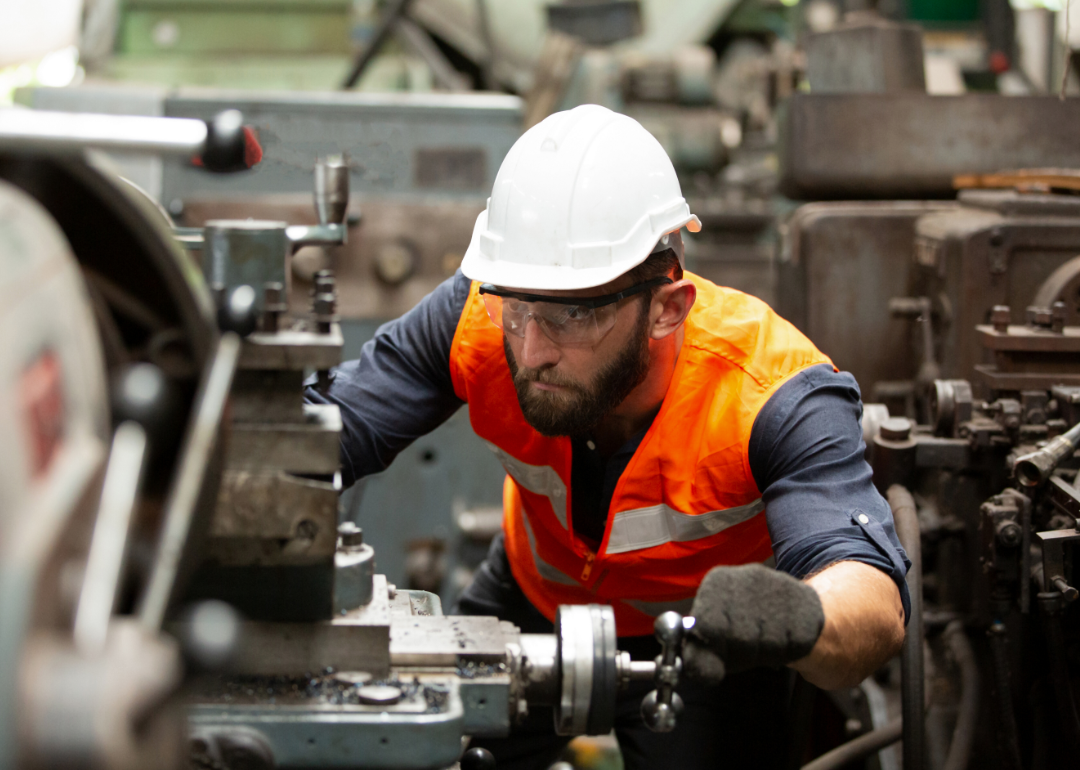
This story originally appeared on Machinery Partner and was produced and distributed in partnership with Stacker Studio.
How much manufacturers in Delaware spend on equipment
Equipment enables manufacturers to create almost every modern product, from the clothes on our backs to the cars we drive.
Acquiring the latest equipment and machinery consumes more than three-quarters of American manufacturers' annual capital budgets, Census Bureau data shows. U.S. manufacturers spent more than $135 billion on new and used equipment and machinery in 2021, according to the most recent Annual Survey of Manufactures. In all but one state, these expenses comprised more than 60% of manufacturers' annual capital expenses.
Machinery Partner analyzed equipment spending among manufacturing companies in Delaware as part of a larger national analysis, using 2021 data from the Bureau of Labor Statistics.
Manufacturers in Delaware spent $424.2 million on equipment in 2021, comprising 80% of their overall capital expenditures. Equipment is one of two major capital expenditure categories measured by the Census Bureau. The other is buildings and structures, referring to money spent to create new facilities or renovate and expand existing ones. In Delaware, manufacturers spent $106.8 million on these facilities.
Delaware ranked #23 among states nationally in the share of capital spending put toward equipment. Within this category, manufacturers spent $10.0 million on computers and data processing equipment and $8.2 million on trucks, cars, and other highway-capable vehicles. The rest went toward other machinery, the needs for which vary widely based on forms of manufacturing; examples might include things like tractors, forklifts, robots, and power tools.
The scale of manufacturing within a state, as well as each locale's most prevalent industries, can impact how much companies must spend on equipment. For instance, aerospace, food, and computer/electronics were the primary manufacturing industries across several top-ranked states in the South, West, and Midwest. Within all three of these industries, automation and artificial intelligence have advanced production in recent years—in many cases requiring equipment upgrades.
These common manufacturing segments are particularly influenced by social, regulatory, and environmental factors, which also influence their tool spending. Heightened safety concerns and evolving carbon emissions regulations call for advancements in inspection, assembly, and other elements of aerospace manufacturing. The effect of climate change on crop growth, wildlife habitats, and livestock health challenges the entire food supply chain. The shift to a hybrid-virtual world, accelerated by the COVID-19 pandemic, has put pressure on manufacturers to get breakthrough technologies into peoples' hands swiftly and without disruptions.
Acquiring the latest tools helps manufacturers build products efficiently while meeting safety regulations. Explore the national story to further compare this spending between manufacturers of states.
This story features data reporting and writing by Paxtyn Merten and is part of a series utilizing data automation across 50 states.



